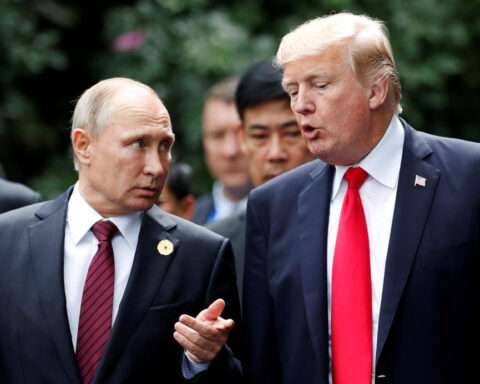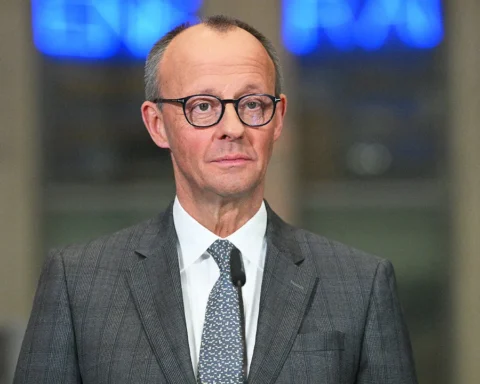ISTANBUL — Turkish Foreign Minister Mevlut Cavusoglu is due to meet Wednesday in Washington with Secretary of State Antony Blinken — the latest step in the process of repairing ties between the two NATO allies. The Turkish diplomat will have tough questions to answer when it comes to Turkey’s efforts to veto bids by Finland and Sweden to join the Atlantic alliance.
Once a close ally of Washington, Ankara has seen relations strained over Turkey’s poor human rights record and Turkish President Recep Tayyip Erdogan’s close ties with his Russian counterpart, Vladimir Putin.
Turkey’s strong backing of Ukraine in the face of Russia’s invasion has offered an opportunity to reset U.S.-Turkish relations, and analysts predict Cavusoglu’s visit to Washington will help that process.
But Asli Aydintasbas, a senior fellow at the European Council, warned Erdogan’s threat to veto Sweden and Finland’s NATO membership bids is casting a shadow over the visit.
“It certainly complicates the visit but also makes it more important,” Aydintasbas said. “The Biden administration started out with a policy of social distancing, retrenchment from the Middle East, and also no longer treating Turkey as the big geopolitical prize in a large chess game. And Turkey is showing it’s not going to let that happen.
“And, of course, the Ukraine war has clearly enhanced once again Turkey’s geostrategic location and importance.”
On Monday, Erdogan accused Finland and Sweden of supporting terrorist organizations fighting Turkey, referring to Kurdish groups. He said Stockholm and Helsinki shouldn’t bother to send diplomatic delegations to change his mind.
Erdogan’s hardening stance, analysts warn, will likely add to concerns in Washington over the Turkish president’s close ties with Putin. In addition, Turkey’s purchase of Russia’s S-400 missile system prompted Washington to impose military sanctions on Ankara.
Soli Ozel, an international relations specialist at Istanbul’s Kadir Has University, said one of Cavusoglu’s objectives — persuading Washington to allow the sale of F-16 fighter jets to Turkey — will likely be complicated by renewed questions over where Erdogan’s ultimate allegiances lie.
“There will be voices raising that question,” Ozel said. “I am afraid it might also lead to a much more negative sentiment selling the F-16s and the kits for upgrading the existing F-16s in the U.S. Congress. In that sense I don’t find such a public move so advisable.”
Russian media on Tuesday announced Putin was planning to visit Turkey in the coming days, a report that has not been confirmed by Ankara but will likely add to the unease among Turkey’s Western allies, including Washington. Aaron Stein, head of the Pennsylvania-based Foreign Policy Research Institute, said sentiments in Washington toward Turkey are likely to become only more entrenched.
“It’s more or less reinforced that Ankara is to pursue its own interests,” Stein said. “So, some people suggest it’s time to sell them F-16s, and others suggest we need compromise on the S-400. But things happen and rabbits can be pulled out of hats. But this one has proved particularly sticky with the S-400s and the F-16s.”
Analysts also expect Cavusoglu will underline the importance of restoring closer communication between the country’s two presidents. How such requests are met may depend on Washington’s approach, and whether U.S. officials decide to confront or acquiesce to Erdogan’s veto threats on Sweden and Finland.






